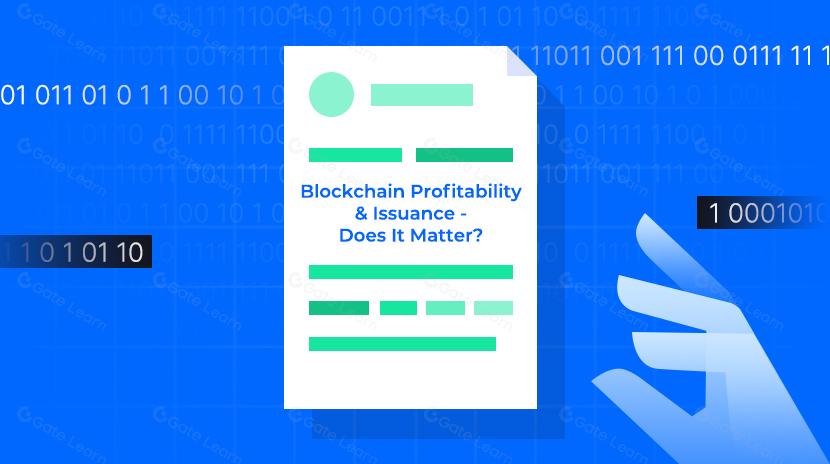check type

What Are Validation Types?
Validation types refer to the set of verification processes that a blockchain applies to data and operations at every stage, with the goal of ensuring transaction reliability and network security. These checks occur throughout the entire lifecycle of a transaction—from wallet initiation to block confirmation—and extend to smart contracts and Layer 2 networks.
In everyday use, a transfer is considered a “transaction,” and each transaction is subject to various rules enforced by nodes and smart contracts. Only after passing these validation types can a transaction be included in a block and recognized by the network.
Why Are Validation Types Important in Blockchain Transactions?
Validation types are essential because they prevent invalid transactions, reduce double-spending risks, and help all nodes reach consensus on the same ledger.
For users, validation types directly impact the safety of their funds. For example, if a balance is insufficient, an address is invalid, or fees are incorrectly set, the transaction will be rejected during validation, helping users avoid potential losses.
How Do Validation Types Work from Transaction Submission to Block Inclusion?
A transaction goes through several validation types from wallet submission to being included in a block. The chronological process is as follows:
- The wallet performs a local signature check. A digital signature acts as a cryptographic endorsement, proving “this was indeed sent by you.” Without a valid signature, the transaction will not be accepted.
- Nodes conduct basic validations, including checking if the transaction format is correct, whether the chain ID matches, if the account balance is sufficient, and if fees (commonly referred to as “gas”) are appropriately set. Gas can be understood as the processing fee paid to the network.
- Nodes verify the “nonce,” a counter that tracks the sequence of transactions from an account to prevent duplicates or out-of-order errors.
- During the packaging phase, the execution layer simulates the transaction’s effect, checking for rule violations such as negative balances after transfer or unauthorized contract calls.
- After a block is generated and broadcasted, the network checks the structure and source of the block to ensure it comes from legitimate participants and connects correctly to the existing chain.
What Are Common Validation Types at the Consensus Layer?
At the consensus layer, validation types focus on whether all participants agree on the same chain—consensus being “the process of multiple parties acknowledging a shared ledger.”
Typical checks include validating the block header, verifying if the timestamp is reasonable, confirming that the parent block exists, and ensuring that both the transaction set and state root are consistent. The state root serves as a “digest of the network’s current ledger,” enabling quick consistency checks.
In networks that use Proof of Stake, participants vote on or sign proposed blocks. Nodes verify the validity of these signature sets, rejecting any blocks that don’t meet threshold requirements or originate from abnormal sources.
How Are Validation Types Reflected During Smart Contract Execution?
Within smart contracts, validation types are reflected in business rules related to permissions and balances. Think of smart contracts as “rules written in code, automatically executed and publicly auditable.”
A common approach is conditional logic. For example, in a token contract, before making a transfer, it checks if the balance is sufficient, if the recipient address is valid, and whether the caller has permission. If any condition fails, the transaction is reverted to prevent errors from being recorded on-chain.
Developers may also implement pause switches, whitelists, or limit checks to mitigate risk during abnormal events. For users, these checks reduce losses caused by misoperations.
How Do Validation Types Differ in Layer 2 Networks?
In Layer 2 networks, validation types emphasize “cross-chain operations and proofs.” A Layer 2 network is a scaling solution built atop the main chain, aiming for faster and cheaper transactions while maintaining security.
Two common validation types are fraud proofs and validity proofs. Fraud proofs assume correctness by default—if someone challenges a transaction, evidence must be provided to identify and rectify errors. Validity proofs require submitting mathematical evidence that confirms batches of transactions are correct.
As of 2026, leading Ethereum Layer 2s primarily use these mechanisms. They offload much of the transaction validation off-chain or record it on-chain in compact form, increasing throughput and reducing fees while connecting security back to the main chain via cryptographic proofs.
How Are Validation Types Applied When Using Wallets and Exchanges?
In practice, users encounter validation types as well. For example, when withdrawing from Gate, you are prompted to choose the correct network and address and may be required to add a memo—all checks designed to prevent mistakes.
Users should check that address formats match the target network, ensure network selections align with the destination chain, and confirm whether a memo is needed before submission. Once submitted, Gate generates a transaction hash you can use to track status on a blockchain explorer.
For asset security, always verify that your destination chain matches your token contract. Sending assets to an unsupported chain or incorrect address often means they cannot be recovered.
How Can You Manually Verify Transaction Status Using Validation Types?
To independently verify a transaction’s status—a process reflecting user-side application of validation types—follow these steps:
- Copy your transaction hash. This unique identifier is similar to a tracking number and is used to check progress.
- Open the appropriate blockchain explorer, paste your transaction hash, and check whether its status is “success” or “failed.” If it shows “pending,” it means it is still being packaged or propagated.
- Confirm that both recipient address and amount match your expectations. The address is your on-chain account number; the amount is what you sent.
- Check that your token contract and network match to avoid looking up assets on the wrong chain or contract.
- If there’s an issue, return to your withdrawal records on Gate for more details and contact official support with your transaction hash for troubleshooting.
What Risks Should Be Considered With Validation Types?
Any operation involving funds demands strict attention to risk. Common risks include selecting the wrong network (resulting in lost assets), missing memos (causing failed receipts), incorrect address input, or setting fees too low (leading to delayed confirmations).
Layer 2 and cross-chain scenarios add risks such as bridge contract vulnerabilities and proof delays. Over-reliance on third-party tools without performing basic checks can magnify errors. It’s recommended to perform essential validation steps before and after every transfer.
Summary and Key Takeaways on Validation Types
Validation types span all layers of blockchain: from wallet signatures and node-level basic checks to consensus confirmation and smart contract business logic—plus proof mechanisms in Layer 2 solutions. Understanding these checks helps explain why transactions are accepted or rejected and can reduce user errors when using wallets or exchanges, enhancing fund security. With new technologies and cross-chain scenarios emerging, maintaining verification habits and risk awareness is key to safely using crypto networks in the long term.
FAQ
What Are the Main Categories of Validation Types?
Validation types are mainly classified into on-chain validation, wallet validation, and exchange validation. On-chain validation ensures transactions are genuinely recorded on-chain and blocks are finalized; wallet validation ensures private key safety and accurate balances; exchange validation includes deposit/withdrawal audits and risk control checks. The type of validation to focus on varies by scenario—understanding these categories helps you quickly pinpoint issues.
How Can Beginners Quickly Determine Which Validation Type Applies to Their Transaction?
You can determine this based on transaction stages: before a transaction is on-chain, focus on wallet validation and initial exchange review; if it’s on-chain but not finalized, focus on consensus layer validation; if problems arise after full confirmation, they may relate to smart contract execution. When depositing or withdrawing via Gate, multiple layers of validation happen automatically; just follow on-screen progress updates to see which validation stage you’re at.
What Should You Do If Your Transaction Gets Stuck at a Particular Validation Stage?
First, identify which stage is causing the delay—use your transaction hash in a blockchain explorer to check its status. If stuck at wallet validation, ensure your wallet is updated and private keys are intact; if stuck at exchange validation, contact Gate support with your transaction ID; if it’s an on-chain validation issue, you’ll usually need to wait for network confirmation—raising your gas fee can help speed things up. Avoid sending duplicate transactions as this increases network load.
Do Validation Types Differ Across Public Blockchains?
Yes—there are significant differences. Ethereum mainnet has strict but transparent checks; Layer 2 networks (such as Arbitrum) offer faster validation but rely on cross-chain bridges; Bitcoin focuses mainly on UTXO validity; each blockchain’s consensus mechanism determines how complex its validations are. When using Gate’s cross-chain swap services, systems automatically adjust validation strategies based on your target blockchain to ensure asset security.
How Are Validation Types Related to Transaction Fees?
The more complex the validation type, the more computational resources required—often resulting in higher gas fees. For instance, executing smart contract validations requires logic checks that consume more gas than simple transfers; Layer 2 cross-chain validations incur additional verification costs. Gate has optimized its withdrawal process to minimize fees—you can choose between standard or fast modes to balance speed with cost.
Related Articles

Blockchain Profitability & Issuance - Does It Matter?

An Overview of BlackRock’s BUIDL Tokenized Fund Experiment: Structure, Progress, and Challenges
